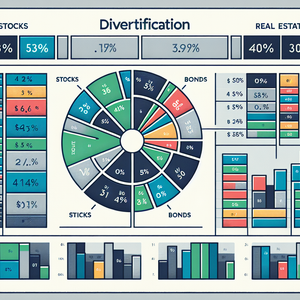Gatsby's Wealth as a Reflection of the American Dream

Gatsby's wealth is not merely a matter of financial success; it represents the allure of status and the desire for acceptance in a society that often equates worth with wealth. His opulent mansion in West Egg, extravagant parties, and luxurious lifestyle exemplify the era's obsession with materialism. Gatsby’s lavish soirées attract the elite of New York, drawing guests who often do not know their host. This reflects the era's culture of excess, where the display of wealth is paramount, yet it also underscores Gatsby's isolation. The sources of Gatsby's fortune, rumored to stem from bootlegging, gambling, and stock market speculation, introduce an element of moral ambiguity. Gatsby embodies the idea that anyone, regardless of their origins, can achieve success. However, this success often comes at a cost, as individuals may resort to morally questionable activities to attain their dreams. Gatsby's life serves as a microcosm of the American Dream's darker side: the belief that wealth guarantees happiness and social acceptance.
The Contradictions of the American Dream
While Gatsby's ascent to wealth embodies the possibility of the American Dream, it also underscores its contradictions. The narrative reveals that wealth does not guarantee happiness or fulfillment. Gatsby's relentless pursuit of riches is ultimately tied to his longing for Daisy Buchanan, a symbol of the idealized love and acceptance he yearns for. His success, therefore, becomes a hollow pursuit, revealing the emptiness that can accompany the attainment of material wealth. Fitzgerald illustrates that the American Dream is fraught with the danger of equating success with societal approval, ultimately leading to disillusionment. Despite his affluence, Gatsby remains unfulfilled, as his wealth can never truly bring him the love and acceptance he seeks. This disillusionment is poignantly captured in the tragic ending of the novel, where Gatsby's dreams are ultimately shattered, leaving him isolated and unrecognized.
Social Stratification and the Illusion of Equality
Fitzgerald's portrayal of Gatsby's wealth also reflects the stark social stratification of the 1920s. Despite his financial success, Gatsby remains an outsider in the upper echelons of society, never fully accepted by the old money elite represented by Tom Buchanan and Daisy. This dynamic speaks to the inherent inequality in the American Dream, suggesting that wealth alone cannot dismantle the entrenched social barriers. Gatsby's struggle for acceptance highlights the illusion of equality that the American Dream promises. The characters representing old money, such as Tom and Daisy, look down upon Gatsby, dismissing him as nouveau riche. Their disdain underscores the rigid class divide that persists despite the appearance of social mobility. Fitzgerald's narrative suggests that those born into privilege often maintain their power and status, leaving individuals like Gatsby perpetually striving for recognition and acceptance.
The Price of Ambition
Gatsby's journey serves as a cautionary tale about the price of ambition. His pursuit of wealth and status leads not only to personal sacrifice but also to moral compromise. The lengths to which he goes to achieve his dream—including engaging in illegal activities—raise questions about the ethical implications of the American Dream. Fitzgerald prompts readers to consider whether the relentless pursuit of success, often celebrated in American culture, may ultimately lead to destruction, both personally and socially. Gatsby’s tragic end, culminating in his death, illustrates the devastating consequences of an unchecked ambition. His wealth, which he accumulated through dubious means, does not shield him from the tragic realities of life. Instead, it amplifies the emptiness of his existence, leading to a bitter reckoning with the ideals he sought to embody.
In examining Gatsby's wealth as a reflection of the American Dream, it becomes clear that Fitzgerald offers a complex critique of a society driven by materialism and status. Gatsby's rise and fall illuminate the contradictions and disillusionments that accompany the pursuit of wealth, revealing the dark undercurrents of ambition and desire. Ultimately, "The Great Gatsby" serves as a powerful reminder that the American Dream, while alluring, is fraught with challenges and moral dilemmas that continue to resonate in contemporary discussions about success and fulfillment. Through Gatsby's story, Fitzgerald captures the essence of a society striving for greatness, only to discover the emptiness that often lies beneath the surface of wealth and ambition. In the end, Gatsby’s tragic narrative warns against viewing wealth as the ultimate measure of success. It suggests that the American Dream, while rooted in ideals of opportunity and prosperity, can lead to devastating disillusionment when pursued at all costs.
Financial Analyst (Investment Banking)
Goldman Sachs, Morgan Stanley
Core Responsibilities
Analyze financial data to assess the performance and potential of investments.
Prepare financial reports and presentations for clients, highlighting market trends and investment opportunities.
Collaborate with senior bankers to develop financial models and valuation analyses.
Required Skills
Proficiency in Excel and financial modeling techniques.
Strong analytical and quantitative skills, with attention to detail.
Excellent communication skills for client interactions and presentations.
Corporate Social Responsibility (CSR) Manager
Unilever, Coca-Cola
Core Responsibilities
Develop and implement CSR initiatives that align with the company's values and business goals.
Conduct assessments of the company's social impact and sustainability practices.
Engage with community stakeholders to foster partnerships and enhance corporate reputation.
Required Skills
Strong understanding of sustainability practices and social equity issues.
Excellent project management and organizational skills.
Ability to communicate effectively with diverse audiences, including executives and community leaders.
Economic Consultant
Charles River Associates, Analysis Group
Core Responsibilities
Evaluate economic policies and their impact on markets, industries, and public welfare.
Conduct economic research and analyze data to support litigation or business strategy.
Prepare detailed reports and presentations to communicate findings to clients.
Required Skills
Strong analytical abilities and proficiency in statistical software (e.g., STATA, R).
Ability to interpret complex economic theories and real-world applications.
Excellent writing and communication skills for presenting findings to non-experts.
Cultural Critic/Journalist
The Atlantic, The New York Times
Core Responsibilities
Analyze and write about cultural phenomena, trends, and their societal impacts.
Conduct interviews and research to support articles on topics related to wealth, class, and the American Dream.
Engage with readers through social media and public speaking events.
Required Skills
Strong writing and storytelling abilities, with a critical eye for detail.
Familiarity with social media platforms and audience engagement strategies.
Ability to work under tight deadlines and manage multiple stories simultaneously.
Real Estate Development Project Manager
Brookfield Properties, Hines
Core Responsibilities
Oversee all phases of real estate development projects, from site acquisition to completion.
Coordinate with architects, contractors, and local governments to ensure compliance with regulations.
Monitor project budgets, timelines, and quality control throughout the development process.
Required Skills
Strong project management skills with proficiency in project management software.
Knowledge of zoning laws, building codes, and real estate market analysis.
Excellent negotiation and interpersonal skills to liaise with various stakeholders.


